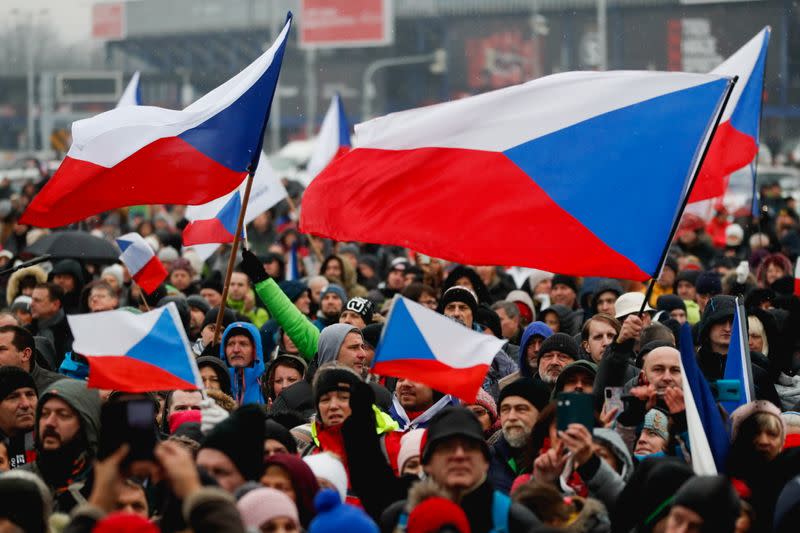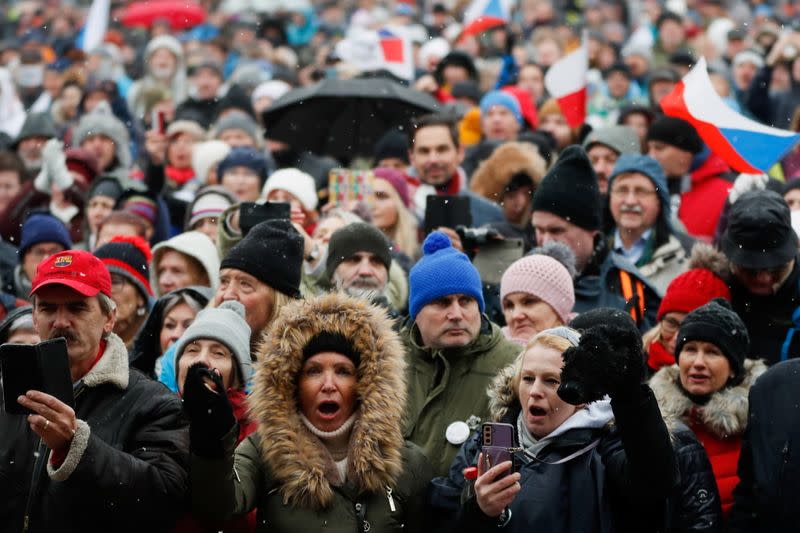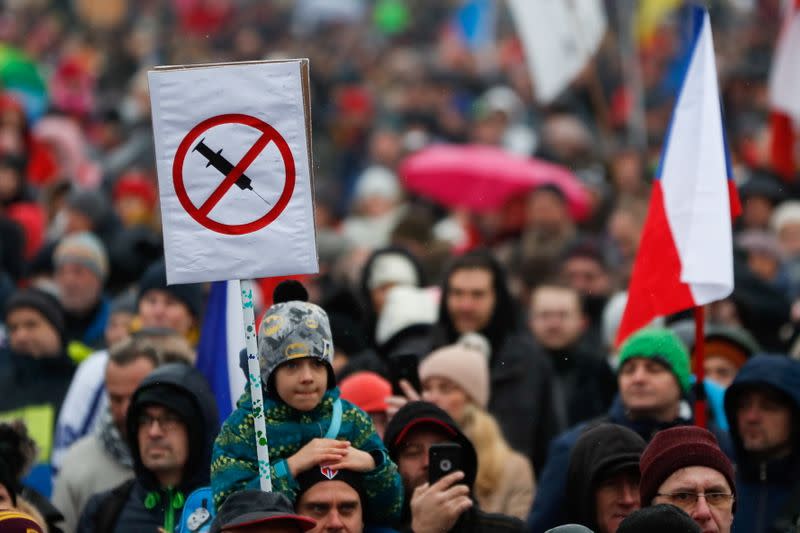Thousands protest against Czech COVID measures as hospitals fill
PRAGUE (Reuters) - Several thousand people protested in Prague against anti-coronavirus restrictions on Sunday as many Czech hospitals halted non-urgent procedures in the face of one of the world's fastest rates of new infections.
Gathered in a park overlooking the Czech capital's centre, protesters waved national flags and carried signs with slogans such as: "Get vaccinated? Over your dead bodies".
The outgoing government toughened measures on Thursday, including a ban on Christmas markets, which was one of the main themes at Sunday's rally.
"I am here to fight for freedom. I am here because I don't agree with what is happening today," Jiri Hulec told Reuters.
Czech hospitals, including the largest one, Prague's Motol, have ceased planned operations and limited other care in the past days as the number of patients with COVID-19 has doubled to around 6,000 over the past three weeks.
Newly-appointed Prime Minister Petr Fiala earlier called on people to get vaccinated to protect themselves and others from serious conditions if infected.
Only 58.5% of Czechs are vaccinated against coronavirus, compared to a European Union average of 65.8%, data from the European Centre for Disease Prevention and Control shows.
(Reporting by Robert Muller; Editing by Alexander Smith)

 Yahoo Finance
Yahoo Finance 









